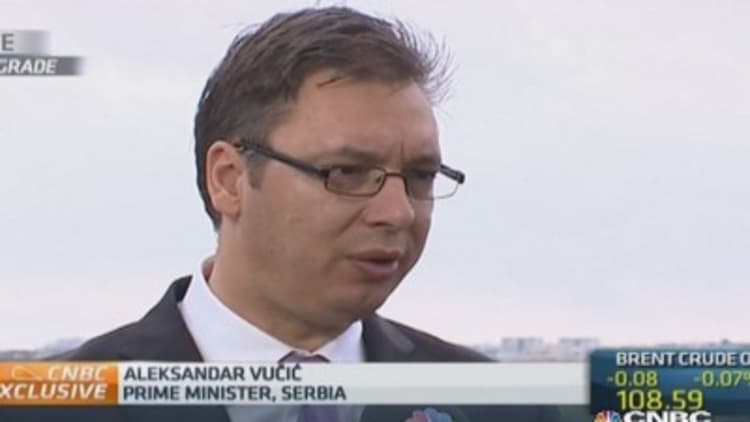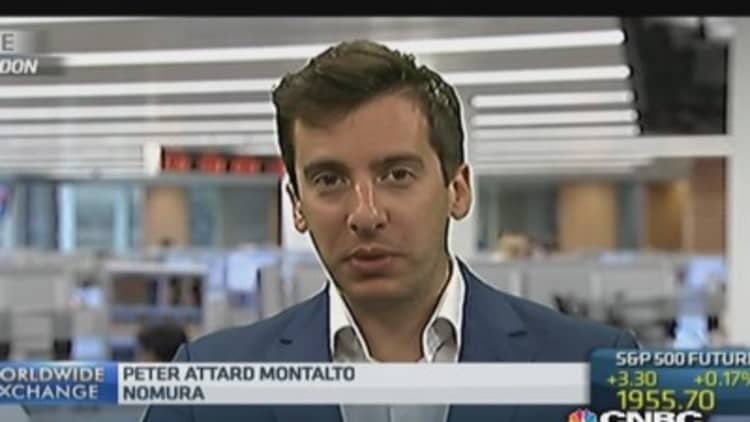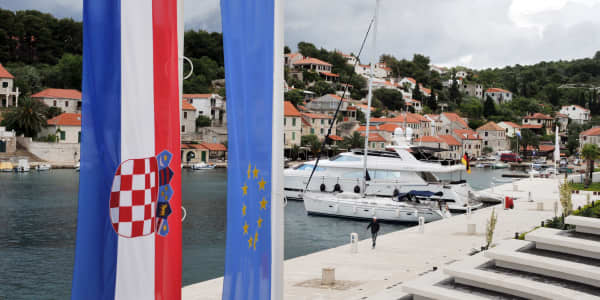Eastern Europe has struggled to attract foreign investors thanks to its image as a "Wild West" for business, with stories of bad governance and corruption dominating the headlines. In response, governments—particularly in countries like Serbia, Bulgaria and Romania—are pursuing zero-tolerance policies to show that things have changed.
"I think the crackdown on corruption is a positive movement in the region," Emil Tedeschi, CEO of Atlantic Grupa, a Croat multinational consumer goods company, told CNBC in Zagreb.
He highlighted anti-graft efforts in Croatia, which have already led to former Prime Minister Ivo Sanader being jailed in 2012 for eight-and-a-half for taking bribes. After the sentencing, Croatia´s rating in Transparency International´s widely viewed Corruption Perceptions Index edged up, suggesting rising confidence in its public sector integrity.
"Croat authorities are starting to clean up the mess. There is no saint or protected person, from the president of the state to prominent intellectuals, and I think that is great. It shows the public that nobody is protected," Tedeschi said.
White-collar crime
Further north in Slovakia, white-collar crime lingers as a legacy of the anarchic early post-communist years, with the hasty privatizations of the 1990s providing ample scope for profiteers.
The country's government was hit by scandal in 2008, due to the controversial sale of its surplus carbon emissions quota to a little-known offshore entity at a sharply lower price compared to deals in neighboring countries and then sold on at a huge profit.
The deal was investigated by both Switzerland and Slovakia but no corruption was proven, according to local media reports.
Private finance also exerts undue influence over politicians, in the opinion of one Slovak business leader.
"Some level of influence is natural, but my personal feeling is that it goes too far in Slovakia," Miroslav Trnka, the co-founder of I.T. security firm ESET told CNBC.
He said there were indications that financial groups might be trying to influence government legislation, as well as angling for positions of power in public projects worth billions of euros.
Serbia's 'very serious' problem
Despite concerns raised from Trnka and others, countries such as Slovakia typically rank better when it comes to corruption than those in closer to the Balkans.
Serbia, for instance, is ranked as one of eastern Europe's most corrupt countries by Transparency International. The organization's 2013 Corruption Perceptions Index showed that 70 percent of Serbs though public sector corruption was a "very serious problem".
"It is evident that much more needs to be done to stop the abuse of power, secret dealings and bribery. This is doubly true if the country wants to join the European Union.," wrote the anti-corruption body in March.
Newly installed Prime Minister Aleksandar Vučić and other Serb politicians have vowed to combat the problem. Measures introduced include the appointment of an independent Information Commissioner and a new law enforcing free access to information.

However, business people in the Serb capital of Belgrade told CNBC that the unreformed judicial system still scares foreign investors away, who feared losing out to in local legal cases. Transparency International's index found that the judiciary was viewed as the most corrupt institution by Serbs, along with the civil service and medical sector.
'Like a cancer'
Enthusiasm for reform is rising among politicians across emerging Europe, who are aware that transparent public institutions and rule of law are vital for attracting foreign investment and joining the European Union.
"We have been delaying all reforms for decades and now we have to do almost everything to create a better business environment," Serb Prime Minister Vučić told CNBC in Belgrade. "We need to do a lot more to make Serbia a more attractive place for foreign investors from Western society."

Business leaders are also taking a stand. ESET's Trnka has founded the "Stop corruption foundation" in Slovakia, which has a triple mandate of exposing corruption, protecting those who do and educating people about its existence.
"I personally hate corruption because I feel that it is like a cancer. It undermines the basics of society and it makes for a very bad entrepreneurial environment, so I think it is very important to fight it," he told CNBC.
—By CNBC's Katy Barnato in Belgrade, Serbia




